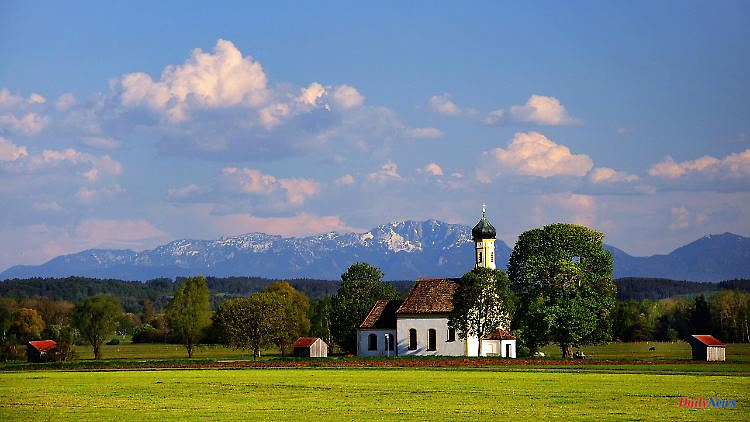Spring at the turn of the year: In southern Germany, the thermometer climbs to more than 20 degrees on the last day of the year. According to meteorologists, temperatures of up to 18 degrees are possible even at midnight. And the winter? Takes his time.
The German Weather Service (DWD) measured record values for December 31 on New Year's Eve. In Wielenbach in the Upper Bavarian district of Weilheim-Schongau, the thermometer showed 20.8 degrees around 2 p.m., as the DWD announced in the evening.
Across Germany, a total of four places broke the 20-degree mark on the last day of the year: In addition to Wielenbach, it was also record-breakingly warm in the Bavarian state capital at the Munich-City station. In addition, the temperatures in Baden-Württemberg's Müllheim near Freiburg and in Ohlsbach - also in Baden-Württemberg - also rose by 20.3 degrees. There were also temperatures around 19 degrees in Freiburg, Stuttgart, Karlsruhe, Mannheim and Dresden.
The previously highest temperature on New Year's Eve was 17.0 degrees in 1961 in Muellheim. Last year it was already 16.9 degrees warm in Freiburg im Breisgau.
ntv meteorologist Björn Alexander had already announced a few days ago a "warm air clamp" for the turn of the year, through which temperatures of 15 to 18 degrees are possible even at midnight. In addition, even the mountains are largely snow-free this year - apart from snow-covered slopes.
The new year starts with record-breaking temperatures of up to 19 degrees. It is still changeable to rainy in the north and north-west. Otherwise it stays dry more often and in the south even friendly to sunny in some areas.
In the course of the week it cools down a bit to 7 to 15 degrees. According to meteorologists, it won't really be winter again until the end of January at the earliest.
(This article was first published on Saturday, December 31, 2022.)












